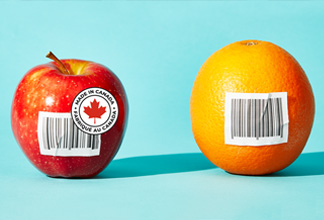Financial Checklist: 6 Money "Must-Dos" For 2019
Written by The Content Team | Published on January 16, 2019
Written by The Content Team | Published on January 16, 2019
A new year brings an opportunity for a fresh start and can be a great time to assess your goals, get organized and, just in general, be productive. For many, financial plans are part of the equation. Here are six simple and quick ways to tackle a financial checkup.
Many accounts let you make automatic contributions, withdrawals or transfers, and set specific investment instructions, including dividend reinvestments and treasury bill rollovers. If you haven't set these up, doing it now can save yourself time in the long run. If you're already doing many of these, check in to make sure the amounts set reflect your current goals, needs and budget. The start of a new year can be the perfect time to make sure everything is in alignment. Find out more in Automated Account Services.
You may be able to put some money back in your pocket by saving on fees through optimizing your accounts and/or transactions. For example, your overall balance can affect the maintenance fee of your accounts. As well, if you set up automatic contributions or have a certain number of commission-paid trades in a quarter, your quarterly maintenance fee may be waived. Review your fee schedule and any opportunities to reduce fees to make sure you're not leaving money on the table. Find out more in Understanding Commissions & Fees.
When reviewing financial goals (and looking ahead to tax season!), it's worthwhile to include a 10-minute check-in to ensure your investment accounts are aligned with those goals. Registered (eg. RRSPs) and non-registered (eg. cash or margin) accounts are often used for different purposes. An account used to build retirement savings, for example, may be different than one focused on saving for a dream vacation. Reviewing which accounts are part of your portfolio and how you're contributing to those accounts, as well as where you stand on contribution limits, can keep you on track for the year ahead.
Changing your online account passwords every couple of months can help you avoid unauthorized transactions. This is a no-brainer as it can help protect your account and personal information from the hacks and cyber threats that crop up more and more these days. Take a few minutes to visit websites where you've saved your personal information to update your passwords and review privacy settings. Get more tips and ideas in 4 Ways to Protect Your Privacy in the Digital Era and 9 Simple Ways to Protect Your Identity.
Speaking of unwelcome surprises, if something were to happen to you, would your funds be handled according to your wishes? Outside of Quebec, registered account holders can name a beneficiary for registered plans such as Registered Retirement Savings Plans (RRSPs), Registered Retirement Income Funds (RRIFs) and Tax-Free Savings Accounts (TFSAs). (In Quebec, beneficiaries can only be named in a will.)
Have you named a beneficiary? Do you remember who it is? And is your beneficiary still relevant for your current situation? A quick check to review your beneficiary designations can alleviate administrative headaches for your loved ones. Find out more about beneficiaries in Who Gets the Corvette? Insight From Prince's Story.
Stay "in the know" and save time on the research front by setting alerts and creating watchlists. Trust us, this can be a "gift" to yourself because it's an opportunity to enhance your research skills, learn about different companies and, potentially, find new investments for your portfolio. If you're interested in a particular stock, alerts will notify you if the stock goes above or below a certain price, or if there's unusual trading volume or news. You can set alerts on a detailed quote page. Watchlists can be used to track stocks, options or funds of interest to you. And you can build your own — watchlists are customizable.
Here's to a prosperous 2019!
RBC Direct Investing Inc. and Royal Bank of Canada are separate corporate entities which are affiliated. RBC Direct Investing Inc. is a wholly owned subsidiary of Royal Bank of Canada and is a Member of the Investment Industry Regulatory Organization of Canada and the Canadian Investor Protection Fund. Royal Bank of Canada and certain of its issuers are related to RBC Direct Investing Inc. RBC Direct Investing Inc. does not provide investment advice or recommendations regarding the purchase or sale of any securities. Investors are responsible for their own investment decisions. RBC Direct Investing is a business name used by RBC Direct Investing Inc. ® / ™ Trademark(s) of Royal Bank of Canada. RBC and Royal Bank are registered trademarks of Royal Bank of Canada. Used under licence. © Royal Bank of Canada 2019. All rights reserved.
The views and opinions expressed in this publication are for your general interest and do not necessarily reflect the views and opinions of RBC Direct Investing. Furthermore, the products, services and securities referred to in this publication are only available in Canada and other jurisdictions where they may be legally offered for sale. If you are not currently resident of Canada, you should not access the information available on the RBC Direct Investing website.

The U.S. reciprocal tariffs announced have been large and broad-based, but critically exempt Canada and Mexico (at least for now)

Investor interest in Bitcoin is increasing – learn about crypto ETFs

The effects of tariffs can be wide ranging, both economically and behaviourally.